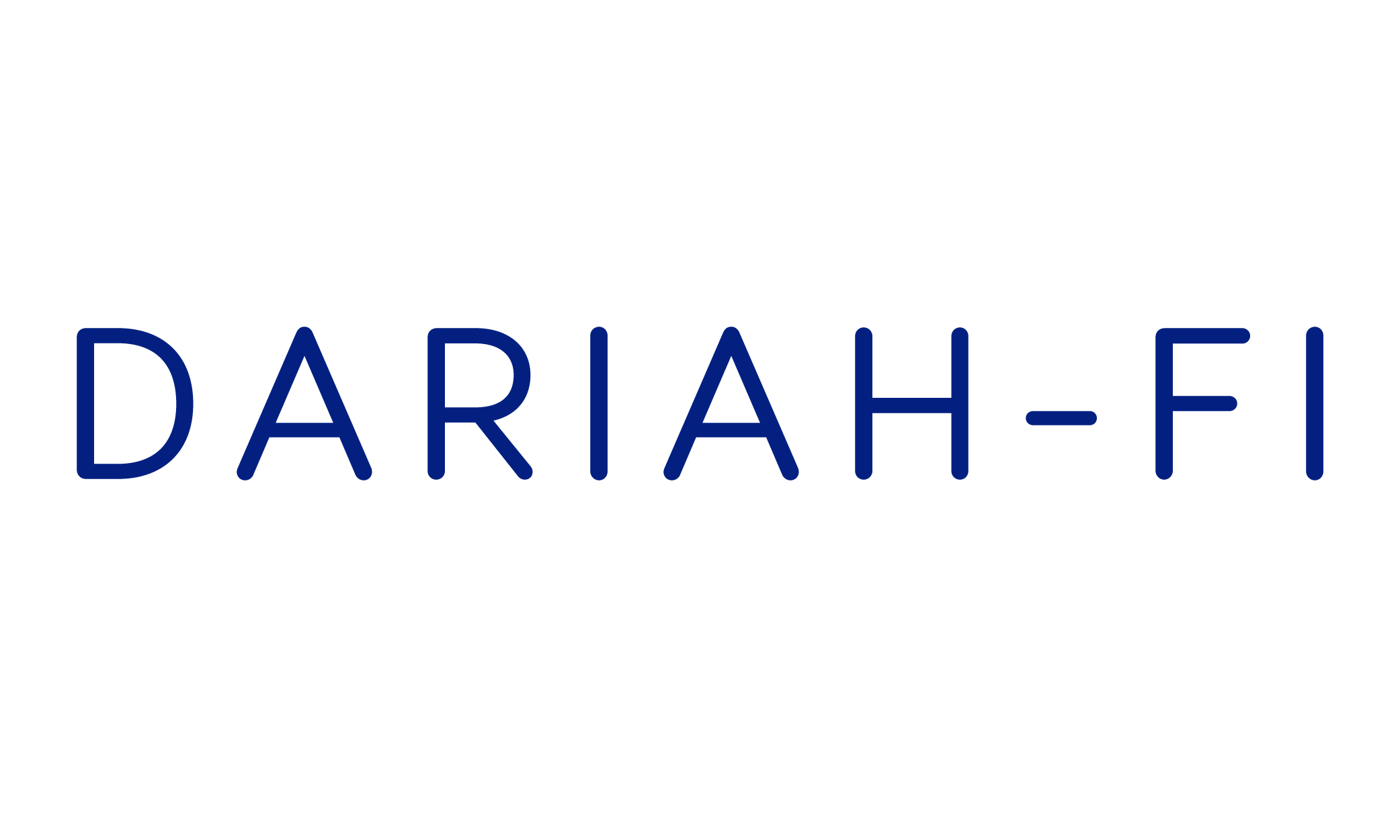DARIAH-FI Roadshow has been touring in Tampere, Jyväskylä, Joensuu, Helsinki, and Turku. The goal was to meet those people we try to serve: humanists and social scientists from every corner of the country. We are a new research infrastructure, so not everyone knows us yet in Finland. A lot of sparkling wine has been poured down the throat in various locations, and now it is good time to sum up what we have learned from the trip so far. There are at minimum three serious lessons for our research infrastructure.
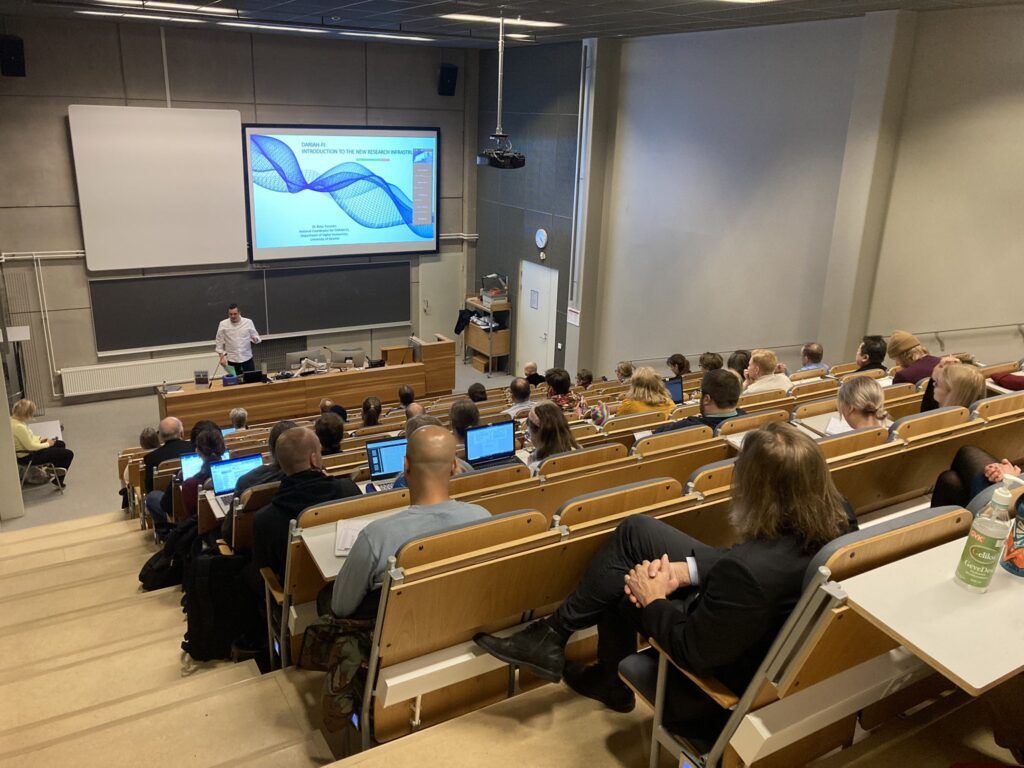
Lesson One: People Are Interested
First, researchers in the social sciences and humanities (SSH) are genuinely interested in our work. We have met more than 240 people on the road so far. In terms of academic positions, graduate students and post-docs dominate the distribution of the participants, perhaps because they have both motivation and time to learn new things (see Table 1). The diversity of academic disciplines is quite incredible: the most popular fields have been by far history and linguistics, but we have had at least five people from fields such as sociology, computer science, and literary studies (see Table 2). This is inspiring but also a major challenge for us: how to build a general infrastructure that respects the diverse needs within the humanities and social sciences? Here, instead of top-down dictation, the plan is to integrate new research communities into our research infrastructure. DARIAH-FI is open for anyone who thinks there is room for improvement in our current SSH infrastructures.
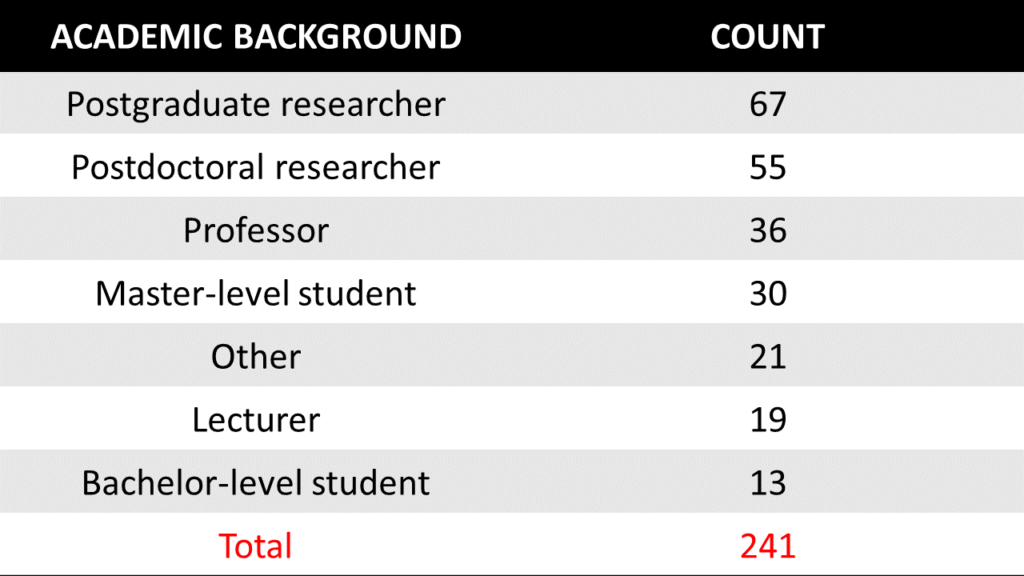
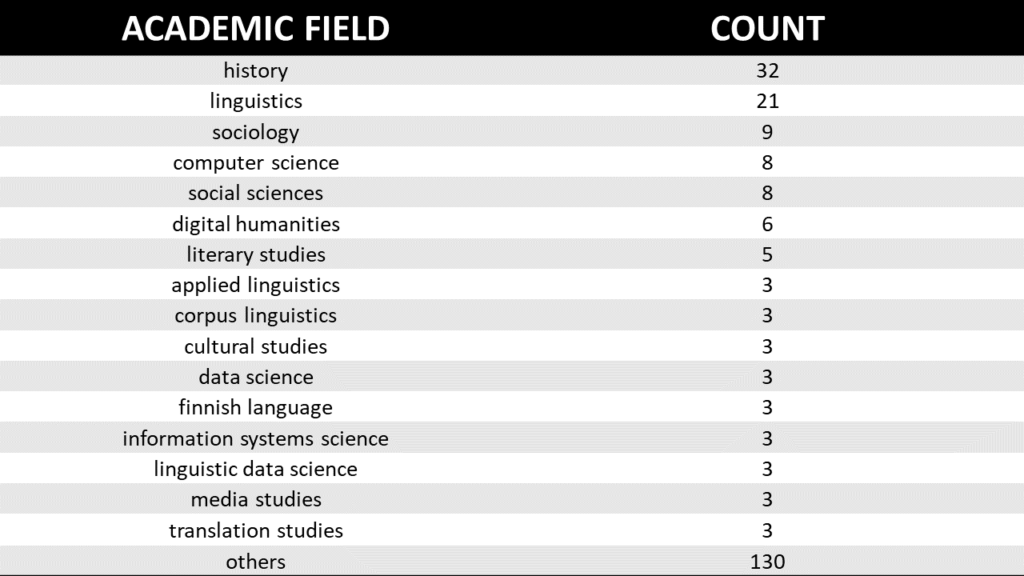
Lesson Two: “What Can DARIAH-FI Do For Me?“
So, people are clearly interested, but the second lesson is that their interest is conditional. Researchers have openly said that they are not going to use our services just for fun, but only if tools, datasets, and workflows add some value to their daily work. But, what is useful to a researcher depends on the researcher’s skills. This notion has led to passionate debates inside DARIAH-FI: are our services meant to support pioneering research in the data-intensive humanities and social sciences, or should we instead focus on that vast majority of SSH researchers whose computational skills are rather limited at the moment? The question has practical implications, for example, for the construction of our tools and the formats of the data we offer. Although DARIAH-FI supports especially the highest quality research, we are also building intuitive interfaces for those who cannot yet code with Python or R. These easy-to-use tools can be thought as simple gateways to the complex world of digital humanities and computational social sciences. We will also pay particular attention to documentation which supports both expert users and beginners: for example, careful code commenting for the former group and simple video tutorials for the latter group. Of course, good documentation eats resources, but like one DARIAH-Nestor has wisely said, “services only become infrastructure when they have enough users”.
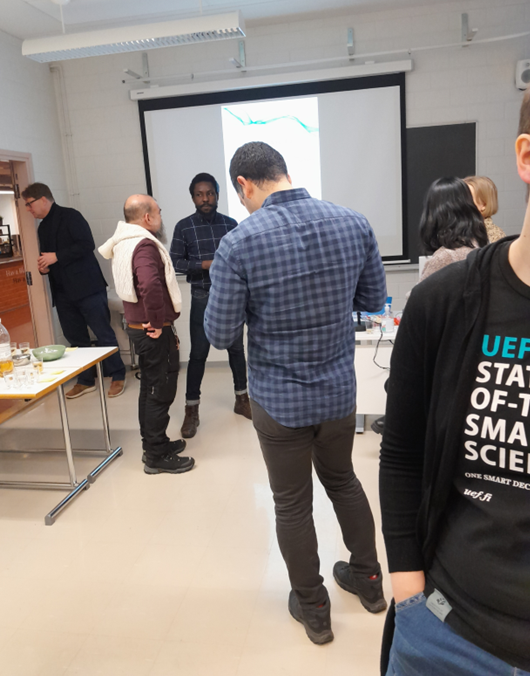
Lesson Three: The Wisdom Of Listening
The third lesson is the lesson of not knowing everything. Before the roadshow, we conceptualized DARIAH-FI as a network that connects local actors to the national infrastructure. But there could be other functions as well. For example, people in several universities have said that there is a gap between SSH and more computational sciences (e.g., computer science, data science, and information science). Here DARIAH-FI, especially our offices, could play the role of a facilitator between different academic tribes and link people also on the local level. I have many good memories from the road, but one of the best comes from Joensuu where I witnessed an historian and a computer scientist introducing themselves and then beginning a discussion on the best GIS libraries. Great research ideas and even projects can emerge from such transdisciplinary discussions! These memories from the road are dear but vague: systematic infrastructure building needs a more solid foundation. This is why we have one Work Package doing deep interviews with people who took part in our roadshow. Soon we will know better what we do not know yet and what people expect from us. If you are interested, Anna Sendra Toset will present the preliminary results of her interviews in the Digital Humanities Research Seminar in Helsinki on May 11 (you can take part on Zoom as well).
The Journey Continues
We have now introduced ourselves to the Finnish SSH communities, and the next step is to help them to do better research in practice. Our Work Packages are working hard, and the fruits of labour are slowly ripening. In every roadshow event I asked if people were interested in taking part in a workshop where they could test our new tools and datasets. Based on the number of hands raised, that might be a good destination ahead for our bandwagon! Hope to see you soon,
Risto Turunen, National Coordinator for DARIAH-FI
